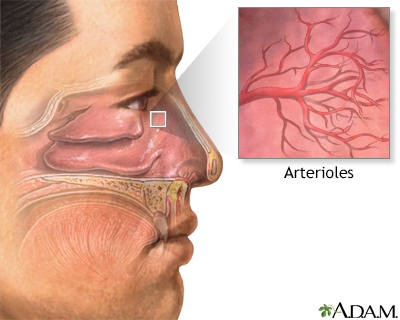
Nose is actually rather vulnerable to injuries. A trauma on the face can cause injury to the nose and result in nosebleed (medically called epistaxis). Depending on the site and the extent of an injury, this bleeding can be minor or major.
If the bleeding doesn't stop after 15-20 minutes of consistent pressure, or if the nosebleeds are frequent and severe, or if they are due to a known underlying condition, it's important to seek medical attention. In some cases, cauterization or other medical treatments may be necessary to address recurring or severe nosebleeds.
A common nosebleed can be easily treated and does not require help from a doctor. The correct first aid steps should be followed as mentioned below: –
If the following symptoms are observed then one must visit the hospital immediately: –